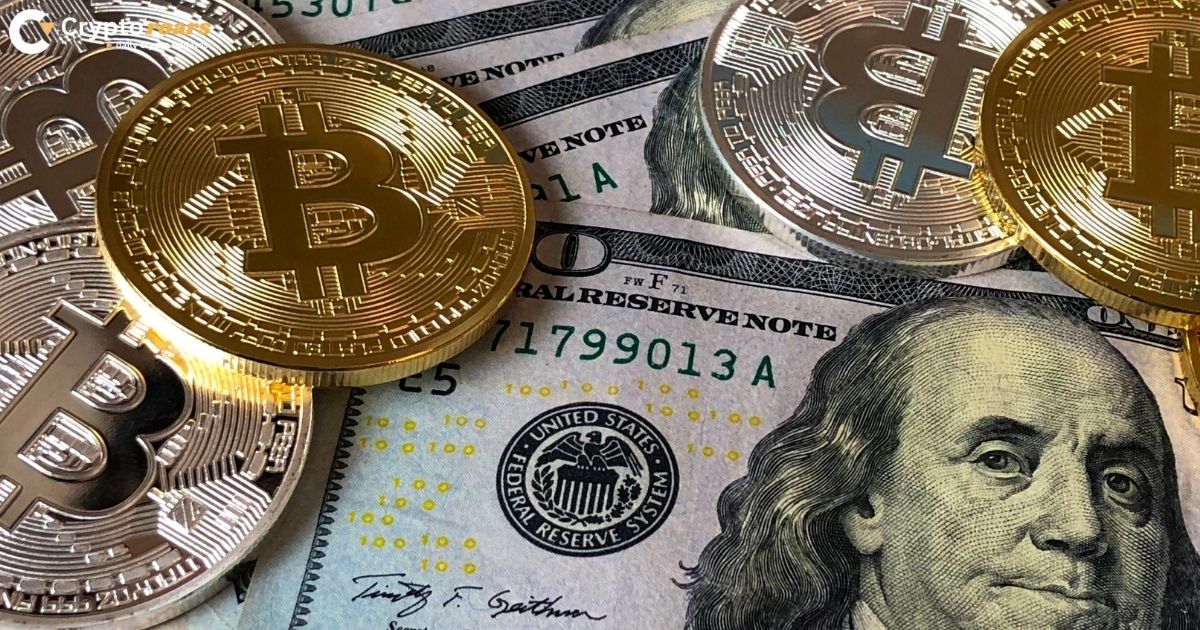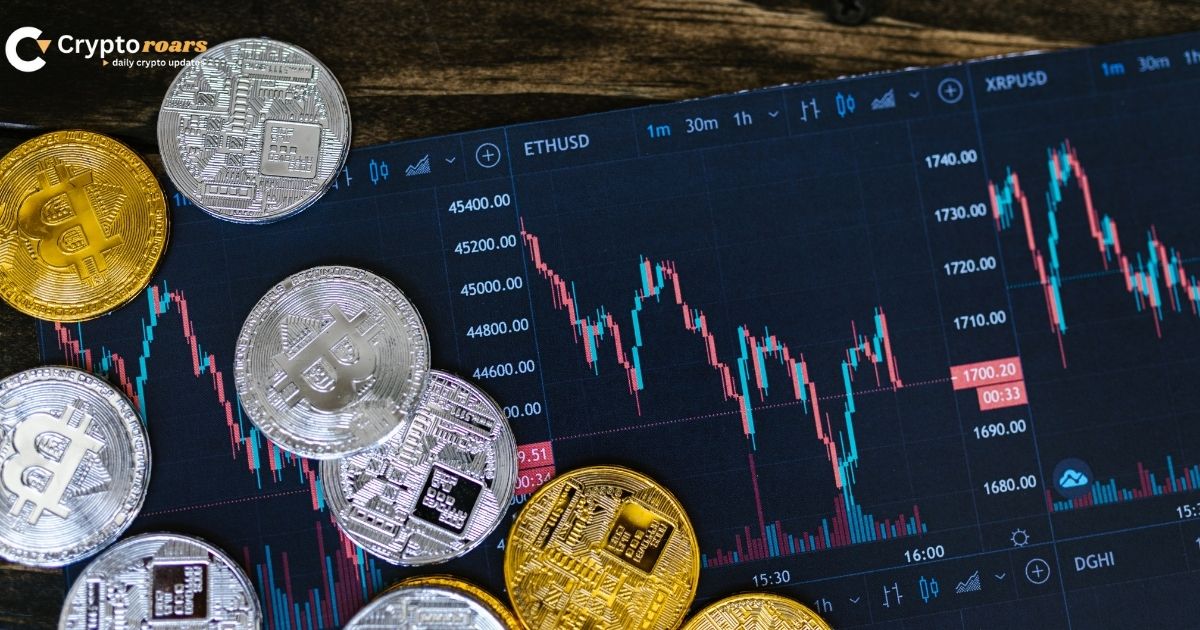Introduction to Political Influence in Crypto
The topic of Political Influence in Crypto is taking center stage in 2025, reshaping how blockchain and digital assets evolve. As governments, lawmakers, and world leaders step into the crypto space, the debate around Political Influence in Crypto is becoming impossible to ignore. In the United States, campaigns and policymakers are experimenting with tokens, fundraising, and blockchain-based innovations. Each policy shift shows how Political Influence in Crypto is no longer abstract but a direct force driving adoption. The reality of Political Influence in Crypto is visible in regulatory frameworks, public endorsements, and government-backed projects, which all reveal how political figures launching tokens impact crypto adoption at scale.
At the same time, Political Influence in Crypto comes with both opportunities and risks. Support from leaders boosts investor confidence in political tokens, driving institutional adoption of blockchain across sectors. Yet, uncertainty also highlights how politics affects crypto markets, where sudden restrictions can trigger volatility. Countries like El Salvador and regulatory hubs such as Dubai prove that Political Influence in Crypto can accelerate tokenization initiatives and push innovation forward. As the connection grows stronger, the true impact of Political Influence in Crypto lies in shaping sustainable adoption and setting the stage for the future of digital finance.
The Rise of Politically-Themed Tokens
Over the last few years, political tokenization trends have emerged as a new force. Politicians, like celebrities, have realized that launching a token can be an instant way to reach their supporters, raise funds, and get attention. For example, political fundraising through tokens is gaining traction because it feels modern, transparent, and relatable for younger voters who are already familiar with crypto wallets and digital assets. These tokens often reflect political identity, ideology, or even serve as symbolic collectibles in the form of NFTs.
However, this rise also creates questions about legal risks in launching crypto tokens. Many tokens start as short-term hype vehicles and quickly lose value, affecting investor confidence in political tokens. Yet, each launch pushes the discussion of how political figures launching tokens impact crypto adoption further into the mainstream, especially when such tokens dominate news headlines and spark debates among policymakers, financial experts, and crypto developers.
Why Political Figures Are Entering the Crypto Space

Political leaders are drawn to crypto for several reasons, and political endorsements for cryptocurrencies are often tied to fundraising, influence, and future-oriented policy narratives. Tokens allow politicians to raise funds beyond traditional donation systems while offering their supporters a unique way to participate in campaigns. In some cases, these tokens function like loyalty badges, encouraging institutional adoption of blockchain within politics itself.
On the other hand, tokens also give political figures an aura of innovation. They connect to younger demographics that value decentralization, decentralized infrastructures, and crypto-friendly tax policies. By entering this space, politicians don’t just raise money; they also project themselves as forward-thinking leaders who embrace technology. This is why the role of political leaders in blockchain adoption has become critical in shaping how ordinary people perceive digital currencies.
Legislative and Regulatory Actions Around Political Tokens
In the United States, bodies like the SEC and CFTC have played a central role in shaping the conversation. The main concern lies in whether political tokens should be treated as securities, commodities, or something else entirely. These debates are also influenced by FATF guidelines and global crypto regulations, making the situation complex.
The push for compliance-first crypto strategies ensures that politicians and their teams hire crypto development firms supporting compliance to avoid penalties. With regulatory crackdowns in crypto already impacting major exchanges and DeFi projects, it’s clear that political tokens are not outside scrutiny. Instead, they are now central to discussions about navigating political uncertainty in crypto and ensuring future campaigns remain transparent, legal, and secure.
Executive Power and Policy Directives in Crypto Adoption
One of the strongest examples of government influence on DeFi adoption comes directly from executive actions. When presidents, senators, or key policymakers endorse or criticize crypto, the market moves instantly. The White House’s position on crypto regulations, for instance, influences not only local adoption but also global collaboration on crypto regulation.
Policy directives have also introduced crypto-friendly tax policies in certain states, making them blockchain-friendly jurisdictions that attract both investors and businesses. Through these actions, political stability and crypto innovation remain tightly linked, showing us exactly how politics affects crypto markets and why leadership plays such a critical role in shaping adoption.
Case Studies of Political Figures Launching Tokens
History offers some fascinating case studies that highlight how political figures launching tokens impact crypto adoption. For example, former President Donald Trump’s NFT collection became one of the biggest political token headlines in the United States. Similarly, in El Salvador, President Nayib Bukele spearheaded El Salvador’s Bitcoin adoption, proving how national-level political will can change global perceptions of crypto.
| Political Figure | Initiative | Impact on Adoption |
| Donald Trump | NFTs and collectibles | Sparked mainstream debates about crypto legitimacy |
| Nayib Bukele | Bitcoin as legal tender | Boosted global crypto regulations discussions |
| UAE Leaders | Dubai Virtual Assets Regulatory Authority (VARA) | Built blockchain-friendly jurisdictions for investors |
These examples show that political events shaping crypto cycles are not isolated incidents. Each case pushes adoption further, whether through market hype, policy change, or institutional investors and crypto tokens becoming mainstream.
Impact of Political Tokens on the Crypto Market
Political tokens often create massive short-term market reactions. Whenever a prominent leader launches a token, political events shaping crypto cycles become evident as trading volumes spike and crypto bull run 2025 discussions resurface. Yet, the long-term adoption depends on whether these tokens are tied to genuine use cases.
For investors, the mix of short-term volatility and potential for sustainable token growth remains a double-edged sword. While some gain profits quickly, others face heavy losses due to the risks of political uncertainty in blockchain. Despite this, every new token launch broadens awareness and highlights how political figures launching tokens impact crypto adoption, shaping sentiment both in the USA and globally.
Emergence of Political Fundraising Through Tokens
The use of tokens for political fundraising through tokens is one of the most innovative applications today. Instead of relying solely on traditional donations, political campaigns now use blockchain-based solutions that are transparent and verifiable. This reduces accusations of corruption and shows voters that donations are traceable.
In practice, tokenomics design under regulation ensures that these fundraising tokens remain compliant with campaign finance laws. They also create direct engagement between leaders and their supporters. By aligning with compliance-driven token development, campaigns avoid risks while creating new channels for investor confidence in political tokens.
Politically-Backed Stablecoins and CBDCs
The difference between government-backed tokens like CBDCs (central bank digital currencies) and personal political tokens is massive. CBDCs are introduced by governments to modernize banking, while political tokens are tied to individuals. Still, both impact crypto adoption by governments.
CBDCs represent a form of sustainable token growth that ensures institutional investors and crypto tokens remain relevant. On the other hand, political tokens reflect grassroots movements or campaign strategies. Together, they show how political figures launching tokens impact crypto adoption from both national and personal perspectives.
Blockchain for Transparent Voting Systems
The debate about blockchain for transparent voting systems is not new, but political involvement has accelerated adoption. Governments are exploring decentralized systems where votes are verified, immutable, and secure. This reflects political stability and crypto innovation working hand in hand.
Transparent voting also addresses security and audits in token development, ensuring systems are tamper-proof. If implemented widely, such systems will showcase the role of political leaders in blockchain adoption and prove that decentralized infrastructures can strengthen democracy.
How Political Events Affect Crypto Adoption

Elections, wars, sanctions, and global trade agreements all highlight how politics affects crypto markets. Every election cycle creates uncertainty, leading to massive fluctuations in Bitcoin, Ethereum, and altcoins. In 2024–2025, the election impact on cryptocurrency became evident when campaign promises about crypto regulation drove both rallies and sell-offs.
Geopolitical conflicts also drive adoption, as sanctions push countries toward decentralized payment systems. These political events shaping crypto cycles highlight how fragile markets can be under external pressure. Yet, each event also educates more people about how political figures launching tokens impact crypto adoption, proving that politics is inseparable from crypto’s future.
Risks and Challenges of Political Tokens
Despite their popularity, political tokens come with challenges. The biggest is volatility, as many tokens collapse after initial hype. This reduces investor confidence in political tokens and increases skepticism. Another challenge is compliance, since not all leaders prioritize compliance-first crypto strategies.
There are also reputational risks. Failed tokens not only hurt investors but also create distrust in tokenization initiatives. This is why challenges for token development companies include ensuring security and audits in token development and avoiding backlash from failed projects that damage the credibility of blockchain adoption.
Opportunities for Businesses in Political Token Trends
While risks exist, businesses also see opportunities. Firms specializing in crypto token development in 2025 can offer services to campaigns, governments, and organizations looking to launch politically-linked tokens. This opens doors for consulting, marketing, and technical innovation.
For businesses, aligning with political tokenization trends also creates potential for entering new blockchain-friendly jurisdictions. With institutional investors and crypto tokens gaining momentum, companies that provide compliance, marketing, and tokenomics expertise can thrive in this space.
Role of Consulting and Development Firms in Political Token Projects
Professional firms play a key role in designing and launching tokens that are sustainable and compliant. They prepare whitepapers, manage tokenomics design under regulation, and ensure listings on exchanges. These services reflect Crypto development firms supporting compliance, which is vital in this politically sensitive sector.
Additionally, they help navigate political uncertainty in crypto by ensuring projects are aligned with global collaboration on crypto regulation. Without these firms, political tokens would likely face more failures, scandals, and a lack of adoption.
Integration of AI and Blockchain in Political Tokenization
The future of political tokens will rely heavily on AI-driven governance and smart contracts. Tools like AI agents can automate compliance, communication, and campaign management. At the same time, smart contracts make token systems tamper-proof and transparent.
When combined with blockchain, AI helps manage compliance-driven token development more effectively. This integration ensures long-term stability while also reflecting how political stability and crypto innovation can coexist in modern governance.
Political Tokens in the Metaverse and Web3
Another area of growth is political tokens in the metaverse and Web3. Leaders are experimenting with virtual rallies, NFTs for supporters, and even creating digital campaign headquarters in the metaverse. This trend reflects how politics is adapting to younger generations.
The political endorsements for cryptocurrencies in these spaces show how political events shaping crypto cycles aren’t limited to the physical world. By using decentralized infrastructures, politicians demonstrate that digital worlds and real-world politics are becoming more interconnected than ever.
Global Policies and the Future of Political Tokens
Around the world, countries are taking different approaches to political tokens. While some encourage political tokenization trends, others restrict them due to legal risks in launching crypto tokens. The Dubai Virtual Assets Regulatory Authority (VARA), for instance, represents one of the most advanced frameworks for regulating politically-backed assets.
Such diversity highlights the need for global collaboration on crypto regulation. Without it, markets remain fragmented, creating barriers for institutional investors and crypto tokens. Still, these policies prove that how political figures launching tokens impact crypto adoption will remain a central debate globally.
The Road Ahead for Political Influence in Crypto
The future looks uncertain but exciting. Experts predict that the crypto bull run of 2025 may be driven partly by politically-backed tokens and sustainable token growth projects. With more nations adopting CBDCs (central bank digital currencies) and politicians launching their own initiatives, adoption is expected to expand dramatically.
However, challenges remain. Risks of political uncertainty in blockchain cannot be ignored, and without compliance-first crypto strategies, scandals may slow down adoption. Yet, the overall road ahead shows increasing synergy between politics and blockchain, proving how political figures launching tokens impact crypto adoption in ways unimaginable just a decade ago.
Conclusion: Can Political Leaders Drive Mass Crypto Adoption?
At the heart of the debate lies one question: Can political leaders truly drive mass crypto adoption? The answer is complex. On one hand, government-backed tokens, CBDCs, and political fundraising through tokens are pushing awareness and adoption at record speed. On the other hand, the risks of political uncertainty in blockchain create doubt and instability.
Still, one thing is certain. Politics and crypto are now deeply linked. The way leaders use tokenization initiatives, manage compliance-driven token development, and influence investor confidence in political tokens will decide whether this is just another cycle of hype or the beginning of a crypto bull run in 2025 driven by political will.
FAQs on Political Influence in Crypto
Q1: What does Political Influence in Crypto mean?
Political Influence in Crypto refers to the role that governments, lawmakers, and political leaders play in shaping the adoption of digital currencies, blockchain policies, and tokenization projects.
Q2: How does Political Influence in Crypto affect adoption in the USA?
In the United States, Political Influence in Crypto determines how regulations are written, how campaigns use tokens, and how institutions decide whether to adopt blockchain.
Q3: Is Political Influence in Crypto always positive?
Not always. Political Influence in Crypto can bring trust and mainstream acceptance, but it can also cause uncertainty when leaders impose strict rules or bans.
Q4: Can Political Influence in Crypto impact global regulations?
Yes. Political Influence in Crypto plays a major role in shaping global crypto regulations, as nations watch how others handle adoption before making their own policies.
Q5: What is the future of Political Influence in Crypto?
The future of Political Influence in Crypto is tied to elections, regulations, and leadership. As more leaders launch tokens, the influence will only grow, driving both risks and opportunities for the crypto industry.
For more information, keep visiting cryptoroars.com


